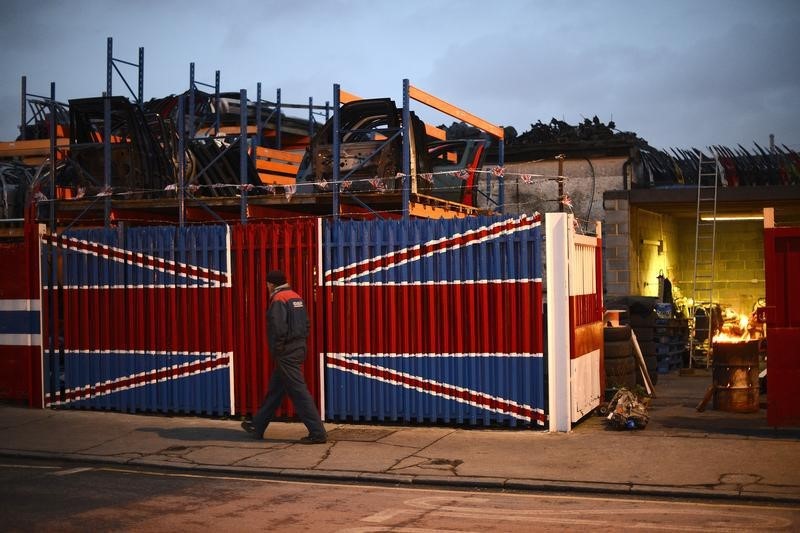LONDON (Reuters) - Plans among smaller British manufacturers for investment and hiring remain muted despite rising turnover and profits, an industry survey showed on Monday.
The quarterly National Manufacturing Barometer, conducted by business consultancies SWMAS and Economic Growth Solutions, chimed with other surveys showing strong manufacturing activity now, but a cautious approach to the future.
Only 40 percent of small- and medium-sized manufacturers said they expect to increase staff numbers in the next six months, down from 42 percent in the previous quarter and the weakest reading since records started in 2013.
Even though sales and profits had improved over the previous survey, investment intentions weakened a little in the latest quarter, the survey showed.
Forty-three percent of manufacturers said they expected to increase spending on machinery and buildings over the next six months, down from 44 percent in the previous survey and the weakest reading since early 2016.
Overall the report fitted with the idea that British manufacturers are in the middle of a temporary "sweet spot".
Bank of England Deputy Governor Ben Broadbent used that phrase in March to describe a window in which producers could enjoy the benefits of a weaker currency, before the possible downsides of Brexit appear.
Monday's survey showed manufacturers were more likely to try to eke out productivity gains from their existing workforce and equipment rather than investing in new machinery and automation.
"Automation is key for us, but the more immediate priority focus should be our people. It's a quicker win," said Karen Friendship, managing director of metal fabricator Aldermans, one of the survey respondents.
The central challenge of finance minister Philip Hammond's budget on Wednesday will be to improve Britain's persistently weak productivity, which lags international rivals and is seen as a major limit to economic growth.
The National Manufacturing Barometer surveyed around 280 small- and medium-sized manufacturers in October.
